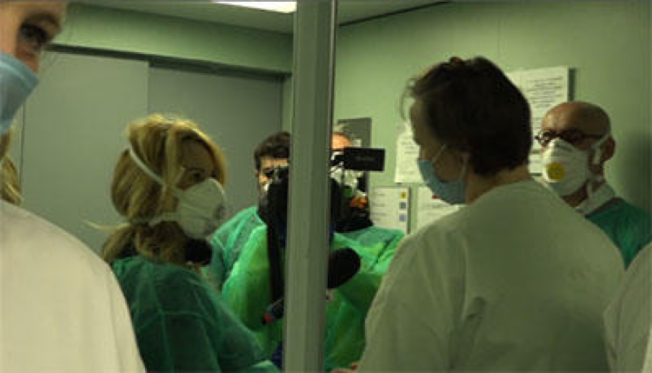CPJ Europe Correspondent Attila Mong spoke with Stefania Battistini, a reporter for Italian public broadcaster RAI, about her experience covering the coronavirus outbreak in northern Italy, one of the hardest-hit regions in the world. Battistini compared the experience to reporting in a warzone. “The enemy is everywhere and you don’t know how to defend yourself,” she said.
CPJ also spoke with journalists in New York, Puerto Rico, Turkey, Azerbaijan, and Russia about the challenges they face covering the pandemic.
Several countries declared states of emergency in March due to the coronavirus outbreak. Hungary and the Philippines mandated prison time for journalists who report “fake news,” Honduras suspended the right to free expression, and authorities in Thailand are now able to pursue charges against reporters for reports deemed incorrect enabled the government to impose restrictions on reporting.
Journalism in the time of coronavirus
- CPJ Emergencies releases a safety advisory on digital security for reporters working remotely
- India’s Uttar Pradesh opens criminal probe into an editor at The Wire for alleged ‘discord’ during COVID-19 lockdown
- Colombian protection unit suspends risk assessments ‘indefinitely’ due to coronavirus
- Brazil restricts access to government information amid COVID-19 emergency
- Ethiopian journalist Yayesew Shimelis detained following COVID-19 reporting
- Belarusian journalist Siarhei Satsuk detained on bribery charges after publishing COVID-19 report
- CPJ joins calls for Kyrgyz president to release journalist Azimjon Askarov amid pandemic
- Iraqi security forces seize journalist’s belongings for allegedly violating COVID-19 curfew
- Iran bans printing of all newspapers, citing spread of coronavirus
- Nigeria imposes harsh restrictions for journalist movement and access, citing coronavirus
- Reporter denied access to Florida governor’s briefing on COVID-19
- Indian Supreme Court denies government request for prior censorship of coronavirus news
- Russian media regulator orders two outlets to take down COVID-19 reports
- CPJ and Internet Society release a joint fact sheet on the importance of encryption to press freedom and the free flow of information
- CPJ and partner organizations call on Council of Europe to protect press freedom amid pandemic
Spotlight
